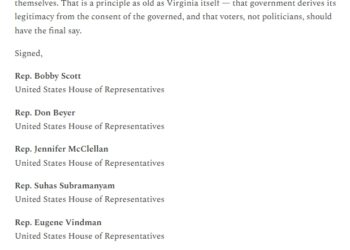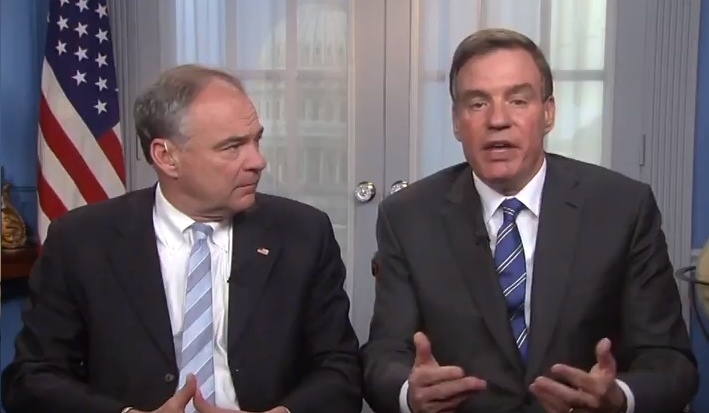By Josh Stanfield of Activate Virginia
As the post-celebratory fog clears and Democrats emerge energized and ready to rule, we should ask ourselves: will Tuesday’s election be reduced to the result of anti-Trump sentiment and heavy campaign spending? Or will elected Democrats see these historic results as a mandate to finally address the undemocratic Virginia Way?
Behind the scenes, elected Virginia Democrats are calling their colleagues and jockeying for the coveted position of Speaker. But nobody has yet questioned the nature of the Howell-Cox speakership and whether or not Democrats should demand democratic structural change to the role of the Speaker.
The Constitution of Virginia does not outline the role of the Speaker of the House; Article IV, Section 7 simply states “The House of Delegates shall choose its own Speaker.” In fact, the Speaker’s powers and duties originate in the House Rules, which are passed every two years (per rule 81) and are relatively easy to change.
The Howell-Cox Strong Speaker
To understand the role and powers of the Speaker of the House under Republican Speakers Bill Howell (2003-2018) and Kirk Cox (2018-2019), let’s look at the 2018-2019 House Rules. On the points below, this set of rules doesn’t vary much from the 2010-11, 2012-13, 2014-15, or 2016-17 sets of rules.
Rules 2-5 (lines 24-77) outline the basic role and powers of the Speaker. You find additional powers of the Speaker in Rule 6a (appointing pages, lines 91-93), Rule 7 (directing the Clerk, lines 97-101), Rules 11-12 (appointing Sergeant at Arms, lines 121-126), Rules 30-31 (attendance, lines 309-313), Rule 53 (preserving order and decorum, lines 494-529), Rule 62b (determining germaneness, lines 537-539), and Rule 67 (taking the vote, lines 564-569).
Arguably the greatest powers of the Speaker are to appoint committee chairs and members, to chair the Committee on Rules (Rule 15-16, lines 138-176), and to direct the Clerk to refer legislation to committees (Rule 37, lines 358-361). These powers give the Speaker control over the fate of all legislation in the House – and the ability to unilaterally dish out committee chairs and seats as patronage.
A Democratic Reform
The Speaker described above – the model embraced by Republican Speakers Bill Howell and Kirk Cox – is a strong, autocratic Speaker. Without touching the vast majority of the Speaker’s powers, it’s possible to significantly democratize the speakership and distribute power throughout our new, diverse, vibrant House Democratic Caucus.
We could, for example, create a Leadership Committee which would vote on committee chair, vice chair, and membership appointments. The same Leadership Committee could also be responsible for referring legislation to the appropriate committees. The Speaker could get a seat on the Leadership Committee, and the House Democratic Caucus as a whole could elect the Leadership Committee through a ranked-choice voting system before each session.
All this would take is a few changes to the House Rules – Rules 15, 16, and 37 in particular – and the willingness to abandon the Howell-Cox strong, autocratic Speaker. It would help prevent abuses by the Speaker, like the establishment of an illegitimate Rules Committee in 2018, and would distribute power away from an autocratic speaker while empowering individual members of the caucus.
Imagine a Leadership Committee with representation from the various viewpoints, regions, interest groups, and factions within our House Caucus – each member with a vote equal to the Speaker’s on appointments? The traditional role of Speaker in the Howell-Cox model, an autocratic figure cutting backroom deals and dishing out positions, would be no more. With a Democratic Majority could come a democratic process of decision-making, and therefore outcomes with more democratic legitimacy.
As it stands, it’s unclear whether or not our House Democrats will move to democratize Virginia’s systems and institutions. Before voting internally on a new Speaker, however, they should at least stop to consider why they were elected. And they should understand that they’re allowed to change the rules, encouraged to question undemocratic systems, and ultimately responsible for the outcomes if they choose to embrace a discredited Virginia Way.

















